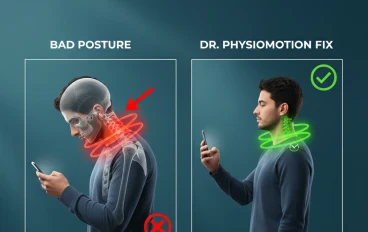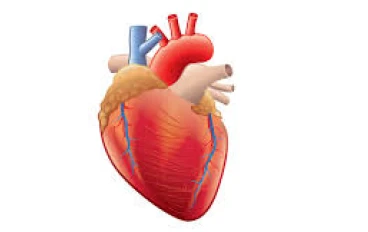
Mental Health: How to Deal with Stress and Anxiety
Mental Health: How to Deal with Stress and Anxiety
In today's fast-paced world, stress and anxiety have become commonplace. It's crucial to understand how to manage and alleviate these feelings to lead a healthier and happier life. In this article, we'll explore effective strategies to deal with stress and anxiety, providing you with valuable insights and practical tips
: Introduction
In today's fast-paced and demanding world, the prevalence of stress and anxiety has reached unprecedented levels. The pressures of daily life, whether stemming from work, relationships, or personal challenges, can often lead to overwhelming feelings of distress. It's no wonder that many individuals are seeking effective ways to navigate and alleviate the burdens of stress and anxiety to restore their mental well-being.
In this comprehensive guide, we will delve deep into the intricacies of managing stress and anxiety. We will explore the root causes of these emotional challenges, identify their triggers, and provide you with a plethora of strategies and techniques to combat them effectively. From the power of deep breathing to the significance of a balanced diet, from the calming influence of relaxation techniques to the importance of seeking professional help, this article will serve as your roadmap to a stress-free and more peaceful life
Understanding Stress and Anxiety
? What Are Stress and Anxiety
Stress is the body's natural response to external pressures, while anxiety is a heightened state of worry or unease. Both can have adverse effects on our mental and physical well-being if left unmanaged
The Impact on Mental and Physical Health
Prolonged stress and anxiety can lead to a range of health issues, including depression, cardiovascular problems, and weakened immune function

Identifying Triggers
Recognizing Stressors
Identifying the sources of stress in your life is the first step in managing it effectively. Common stressors include work-related issues, financial concerns, and relationship problems
Common Anxiety Triggers
Anxiety can be triggered by various situations, such as social interactions, public speaking, or specific phobias. Understanding what triggers your anxiety is essential for devising coping strategies
Breathing Techniques
The Power of Deep Breathing
Deep breathing exercises can calm your nervous system and reduce stress levels. Practicing them regularly can help you stay relaxed even in challenging situations
Practicing Mindful Breathing
Mindful breathing involves being fully present in the moment and focusing on your breath. It's an excellent technique to combat anxiety and promote mental clarity
Exercise and Physical Activity
The Link Between Exercise and Mental Health
Regular physical activity releases endorphins, which are natural mood lifters. Incorporating exercise into your routine can significantly reduce stress and anxiety
Incorporating Physical Activity into Your Routine
Finding an exercise routine that you enjoy is key to staying motivated. Whether it's yoga, running, or dancing, choose activities that make you feel good
Healthy Diet and Nutrition
How Food Affects Your Mood
Your diet plays a significant role in your mental health. Consuming a balanced diet with nutrient-rich foods can stabilize your mood and reduce anxiety
Foods That Can Help Reduce Stress and Anxiety
Certain foods, such as fatty fish, nuts, and leafy greens, contain nutrients that promote relaxation and reduce stress hormones
Relaxation Techniques
Progressive Muscle Relaxation
This technique involves tensing and then relaxing different muscle groups, helping to release physical tension and calm the mind
Guided Imagery and Meditation
Visualization and meditation exercises can transport you to a tranquil mental space, promoting relaxation and stress reduction
Seeking Professional Help
When to Consult a Mental Health Professional
If stress and anxiety are severely impacting your life, it's essential to seek help from a mental health professional
Types of Therapies Available
Therapies like cognitive-behavioral therapy (CBT) and medication prescribed by a psychiatrist can be effective in managing anxiety disorders
Social Support and Connection
The Importance of a Support System
Building a network of supportive friends and family members can provide emotional support during challenging times
Building and Nurturing Relationships
Strengthening existing relationships and forming new ones can boost your resilience to stress and anxiety
Mindfulness and Self-Awareness
Practicing Mindfulness in Daily Life
Mindfulness involves being fully present in the moment, paying attention to your thoughts and feelings without judgment. It can reduce the impact of stress and anxiety.
Developing Emotional Intelligence
Understanding and managing your emotions can improve your ability to cope with stress and build resilience
Limiting Negative Self-Talk
Challenging Unhelpful Thoughts
Negative self-talk can amplify stress and anxiety. Learning to challenge and reframe these thoughts can improve your mental well-being
Affirmations and Positive Self-Talk
Using affirmations and practicing positive self-talk can boost your self-esteem and reduce self-criticism
Hobbies and Interests
The Role of Hobbies in Stress Reduction
Engaging in hobbies and interests you're passionate about can provide an enjoyable escape from daily stressors.
Finding Activities That Bring You Joy
Experiment with various activities until you find those that bring you joy and relaxation, whether it's painting, gardening, or playing a musical instrument.

Sleep Hygiene
Establishing a Healthy Sleep Routine
Quality sleep is essential for managing stress and anxiety. Create a bedtime routine and ensure your sleep environment promotes restful sleep.
Overcoming Insomnia and Sleep Disorders
If you struggle with sleep, consult a healthcare professional to address underlying issues that may be contributing to your insomnia or other sleep disorders.
Coping with Panic Attacks
Understanding Panic Attacks
Panic attacks can be overwhelming and frightening. Recognizing the signs and learning coping strategies can help you manage these episodes effectively.
Coping Strategies During an Episode
Techniques such as deep breathing, grounding exercises, and focusing on a calming mantra can alleviate the intensity of a panic attack.
Conclusion
Stress and anxiety are two common mental health conditions. They can be caused by a variety of factors, including work, school, relationships, financial problems, and health concerns.
There are a number of things you can do to deal with stress and anxiety, including lifestyle changes, cognitive-behavioral therapy (CBT), and medication.
Making healthy lifestyle changes, such as eating a healthy diet, getting regular exercise, and getting enough sleep, can help to reduce stress and anxiety. CBT can help you to identify and change negative thoughts and behaviors that are contributing to your stress and anxiety. Medication can be helpful for some people with stress and anxiety disorders.
A doctor or therapist can help you to develop a treatment plan that is right for you.
In conclusion, dealing with stress and anxiety is an ongoing journey that requires self-awareness and commitment. By implementing the strategies outlined in this article, you can take significant steps toward improving your mental health and well-being. Remember that seeking professional help is a sign of strength, and you don't have to navigate these challenges alone.
FAQs
? How long does it take to see improvement in managing stress and anxiety
- The timeline varies for each person, but with consistent effort and the right strategies, many individuals start to see improvements within a few weeks to a few months.
? Can stress and anxiety be completely eliminated.
- While complete elimination may be challenging, it's possible to manage and reduce the impact of stress and anxiety significantly, allowing for a better quality of life.
? Are there specific foods to avoid when dealing with anxiety.
- Yes, some foods, like caffeine and sugary snacks, can exacerbate anxiety symptoms and should be consumed in moderation
?Is professional therapy necessary for everyone experiencing stress and anxiety
- Not necessarily. Many people find relief through self-help strategies, but if your symptoms are severe or persistent, seeking professional therapy can be highly beneficial.
? How can I maintain a healthy work-life balance to reduce stress
- Setting boundaries, prioritizing self-care, and delegating tasks when possible are essential for maintaining a healthy work-life balance.
Remember, managing stress and anxiety is a personalized journey, and it's essential to find the combination of strategies that works best for you. By taking proactive steps and seeking support when needed, you can lead a happier and more balanced life.


































